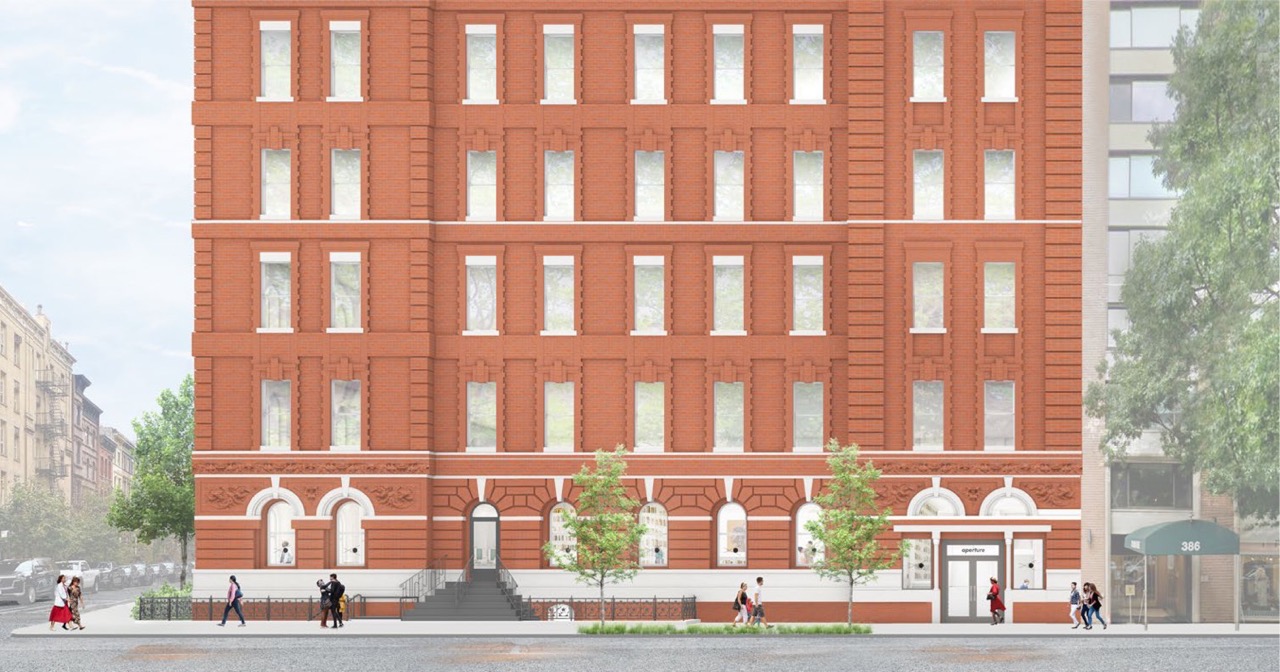Projects
Here for you
Thank you! Your submission has been received!
Oops! Something went wrong while submitting the form.
Central to our client’s vision for their new $235M film and TV production facility, the East End Studio Sunnyside Campus, is to contribute to the up-and-coming Queens, NY, neighborhood’s success. The engagement process prior to financing and development helped position the project for maximum community and program support.
The Sunnyside Campus achieves three key project objectives:
1. City development policy goals
2. Community benefits
3. Energy efficiency
East End Studios teamed with Canyon Partners Real Estate to secure a $193M construction loan and sizeable tax incentives through the NYCIDA for the development of a 340,000-sf, Class-A facility featuring four best-in-class, full-service, ground-floor sound stages, plus a 9,000-sf rooftop flex-stage.
Sunnyside Campus represents a large, new investment in a severely distressed area in Queens, NY.To secure the necessary funding, incentives, and public support, we focused on project attributes best positioned to deliver targeted, measurable results to the local community.
ThinkForward enlisted the help of experts in environmental justice, equitable development, and community engagement. The team met with representative advocacy groups and local businesses and leadership. This pre-development “homework” was rooted in the idea that all projects, including and especially private development, are public-private partnerships if they are to be successful.
Our research fell into three distinct buckets:
1. Developing green facilities to comply with local laws
2. Job creation and other economic development via the NYC film & TV production sector
3. Community benefits
The new Sunnyside Campus project follows stringent energy efficiency measures, as outlined in Local Law 97 to minimize its carbon footprint, and meets critical NYCIDA policy objectives, but its significant community benefits ultimately carried the day! We emphasized the development’s clear advantages for the local community.
· Job creation and money flow to local businesses
· Sales tax revenues and economic development
· Robust workforce pipeline
· Co-working space
We demonstrated through economic modeling and historical data how the project will boost the local economy by creating 750 permanent production/content development jobs and by generating money flow directly to local businesses. For example, we described how the studio space will have direct ties to lumber/woodworking and carpentry, laundry facilities/dry cleaners, electrical work, and food procurement located in the Sunnyside, Queens, community.
Perhaps most rewarding was showing how the project will generate a robust workforce pipeline for related industries and businesses by actively engaging with local enterprises. Potential “partners” include media-focused teen mentoring and workforce readiness programs, like Reel Works, and nonprofits serving minority students, like the award-winning Ghetto Film School.

Central to our client’s vision for their new $235M film and TV production facility, the East End Studio Sunnyside Campus, is to contribute to the up-and-coming Queens, NY, neighborhood’s success. The engagement process prior to financing and development helped position the project for maximum community and program support.
The Sunnyside Campus achieves three key project objectives:
1. City development policy goals
2. Community benefits
3. Energy efficiency
East End Studios teamed with Canyon Partners Real Estate to secure a $193M construction loan and sizeable tax incentives through the NYCIDA for the development of a 340,000-sf, Class-A facility featuring four best-in-class, full-service, ground-floor sound stages, plus a 9,000-sf rooftop flex-stage.
Sunnyside Campus represents a large, new investment in a severely distressed area in Queens, NY.To secure the necessary funding, incentives, and public support, we focused on project attributes best positioned to deliver targeted, measurable results to the local community.
ThinkForward enlisted the help of experts in environmental justice, equitable development, and community engagement. The team met with representative advocacy groups and local businesses and leadership. This pre-development “homework” was rooted in the idea that all projects, including and especially private development, are public-private partnerships if they are to be successful.
Our research fell into three distinct buckets:
1. Developing green facilities to comply with local laws
2. Job creation and other economic development via the NYC film & TV production sector
3. Community benefits
The new Sunnyside Campus project follows stringent energy efficiency measures, as outlined in Local Law 97 to minimize its carbon footprint, and meets critical NYCIDA policy objectives, but its significant community benefits ultimately carried the day! We emphasized the development’s clear advantages for the local community.
· Job creation and money flow to local businesses
· Sales tax revenues and economic development
· Robust workforce pipeline
· Co-working space
We demonstrated through economic modeling and historical data how the project will boost the local economy by creating 750 permanent production/content development jobs and by generating money flow directly to local businesses. For example, we described how the studio space will have direct ties to lumber/woodworking and carpentry, laundry facilities/dry cleaners, electrical work, and food procurement located in the Sunnyside, Queens, community.
Perhaps most rewarding was showing how the project will generate a robust workforce pipeline for related industries and businesses by actively engaging with local enterprises. Potential “partners” include media-focused teen mentoring and workforce readiness programs, like Reel Works, and nonprofits serving minority students, like the award-winning Ghetto Film School.

How Aperture Foundation Financed Its New Space at 380 Columbus Avenue, Manhattan

How to Combine Available Financing Options to Fund New Facilities

Real estate prices for commercial office space in New York City have decreased substantially.